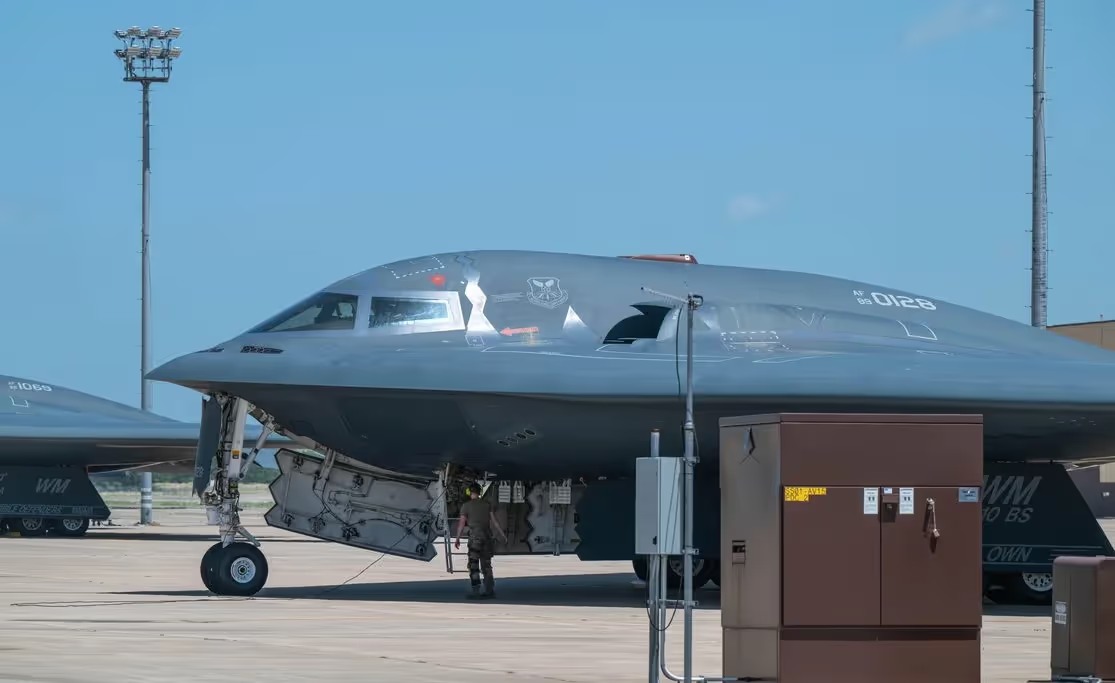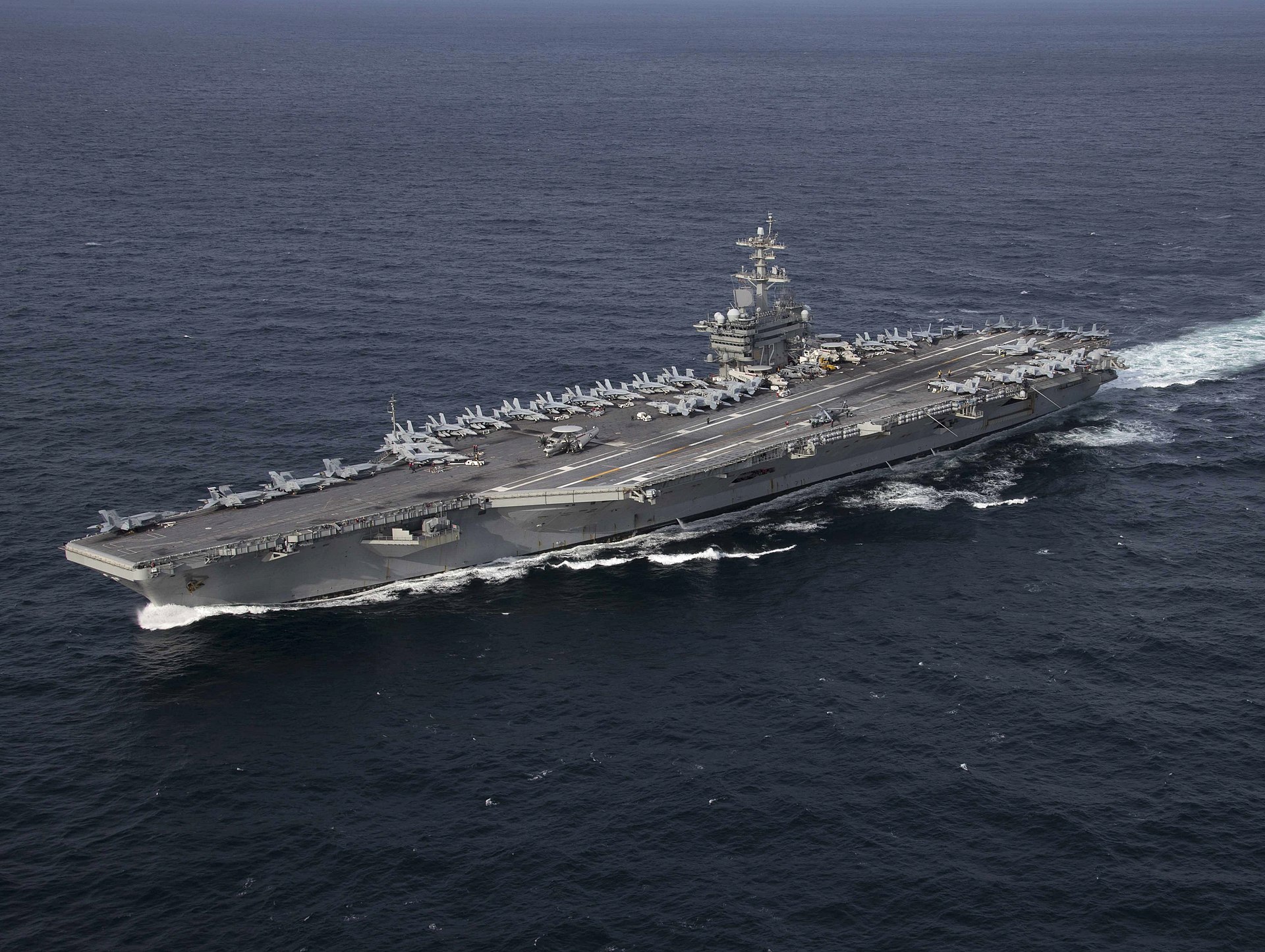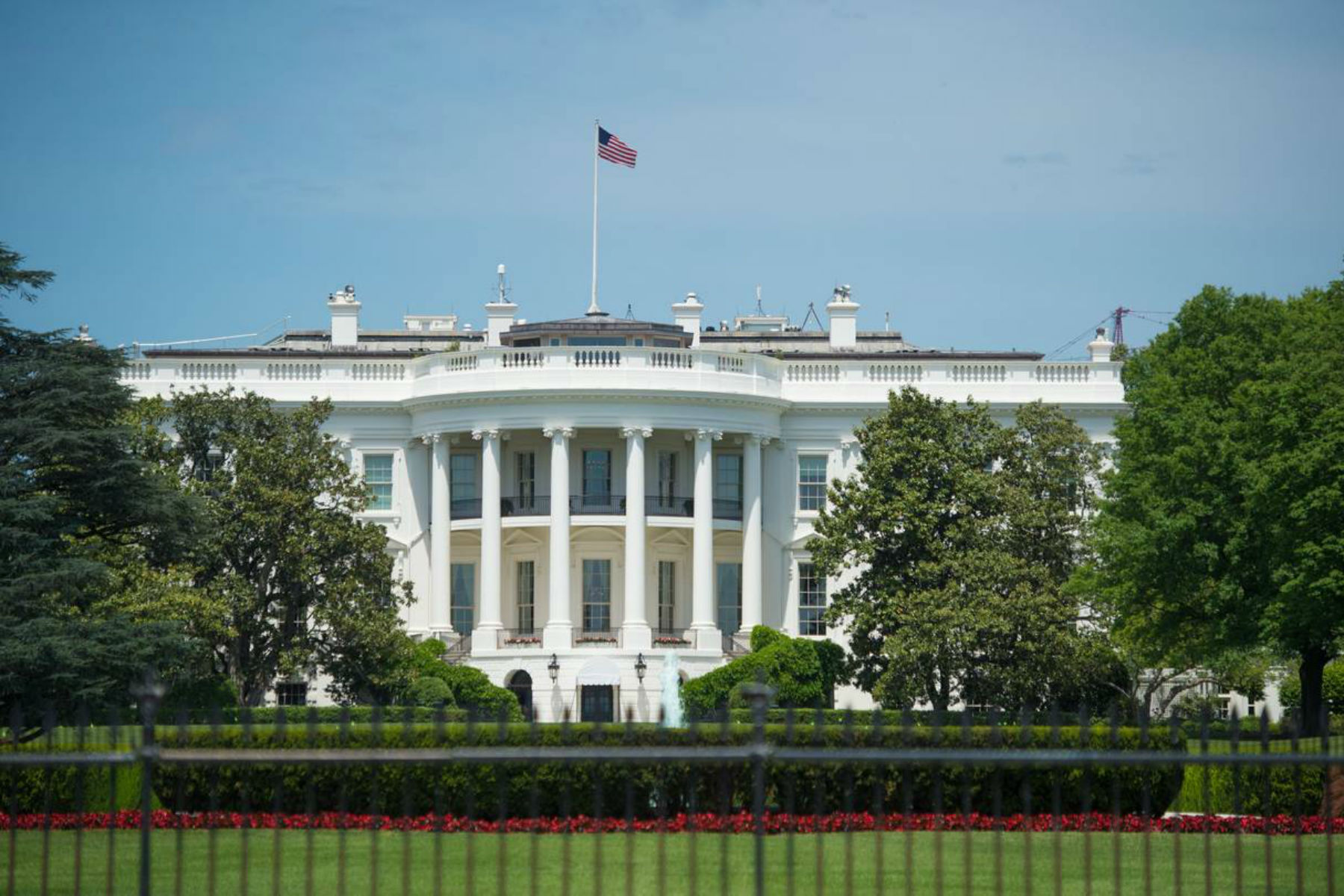
American Power and the Global Calculus of Peace
American military and diplomatic policies have maintained the long postwar peace, fostering peace, trade, and prosperity on levels never seen before.
“Only the dead have seen the end of war,” Plato wrote. As the Middle East and Ukraine remain wracked by conflict, and the United States threatens to repeat its June 22, 2025, bombing of Iran’s nuclear facilities, Plato’s truth seems inescapable. The United States spent the beginning of this century waging difficult wars in Afghanistan and Iraq, fighting terrorist groups responsible for the 9/11 attacks, and intervening in civil wars in Libya and Syria.
But the American attack on the nuclear weapons site at Fordow demonstrates a new, different approach to war. In the past, Western democracies believed that states should reserve armed hostilities only for self-defense or collective action authorized by the United Nations. States could act pre-emptively only if an armed attack was “imminent.” The successful Trump strike on Iran, however, relies on a different understanding: using force to prevent significant threats to our security and national interests well before they develop. Because of the magnitude of the threat posed by an Iran armed with nuclear weapons, the United States will no longer wait until an imminent attack is about to occur, but will resort to armed force earlier to forestall an even greater threat.
Despite this threat, international rules currently restrict the ability of nations like the United States, which can do the most to provide stability, maintain the peace, and advance free-market democracy. Western democracies have responded to these challenges to peace with measures short of war, such as bilateral and multilateral economic sanctions, diplomatic pressure, and development assistance. While achieving varying levels of success, these tools lose power without the threat of force behind them. International law, however, paints the use of any force by these nations as “illegal.”
Meanwhile, these same international rules allow states that undermine global stability, promote authoritarianism, and systematically abuse human rights to hide behind the status quo. The United Nations Charter system gives a veto over the use of force to two nations—Russia and China—that have waged wars of aggression and conquest, such as Russia’s war in Ukraine and China’s past wars in Korea and Vietnam, and its current threats against Taiwan. These nations support each other in their efforts to undermine the Western international order and obstruct solutions to global challenges.
The rules of international law must evolve to confront the threats of this century, not those of the last. Founded at the end of the most destructive war in history, the United Nations Charter understandably attempted to purge all global conflict. The Charter vested the international legal system with the same purpose as domestic law—the suppression of all violence except for self-defense. During the Cold War, the broad conflicts spanning nations gave way to what historians now describe as “the Long Peace.” But the stability of superpower competition, in the presence of nuclear mutually assured destruction, contributed far more to the maintenance of peace than systems of global governance. Today, rogue nations such as Iran, armed with ballistic missiles and weapons of mass destruction (WMD), backed by the authoritarian axis of Russia and China, pose the most immediate threat. Civil wars prodded by political, religious, and ethnic hatreds have killed far more since the end of World War II than great power conflicts. If the United States is to defend the Western democracies and to maintain the stable international order it has nurtured for eight decades, it will have to go to war more often, not less.
In today’s world, war becomes less a means of oppression and more a tool to contain rogue nations, prevent terrorist attacks, and maintain the international order that makes trade, development, and progress possible. A small but early use of force may prove to be the “stitch in time that saves nine.” The benefits of such wars can outweigh the loss of life and treasure by preventing even worse harms. Use of force might block a terrorist group or rogue nation from acquiring weapons of mass destruction. A first strike, for example, might cause the deaths of military and civilian lives, but it might save even more lives overall by preempting a war of conquest. An even larger invasion might free an entire people from the oppression of an authoritarian state. Intervention can help avert or even end a destructive civil war that has killed hundreds of thousands. As these uses of force grow increasingly intense and likely more destructive, the international system should demand greater potential benefits—as measured in human lives, natural and developed resources, and global stability—to justify them. But what international rules should not do is prohibit all offensive uses of force, regardless of the benefits for international peace and security.
History provides many examples of what might not have been. Should France and Great Britain have invaded Nazi Germany during the latter’s attack on Poland? Or even launched a preventive strike to stop Hitler’s remilitarization of Germany? Should the United States have intervened earlier in World Wars I or II and shifted the balance of power in favor of the Allies? This is not just a science fiction excursion into counterfactual history. Sadly, in many recent cases, an earlier use of force could have brought about a greater good. A few thousand Western troops could have halted the 1990s Rwandan genocide that slaughtered 1 million people. Earlier intervention in the Balkans might have preempted Serbia’s 1990s campaign of “ethnic cleansing” of neighboring Muslim enclaves. Strikes in Afghanistan might have prevented al-Qaeda’s rise, and the removal of Saddam Hussein might have precluded the Iran-Iraq War, the 1991 Gulf War, or the 2003 Iraq War.
Domestic concerns no doubt discourage nations from intervening earlier in many of these cases. But these situations also involve challenges inherent in the international system. In many of these cases, no single nation or group of nations has the incentive to intervene because others, who bear none of the costs, will free-ride off their efforts. Without world government that can force burden sharing among all nations, collective action will prove difficult—if not impossible—in all cases where the world would benefit from early military intervention. It almost always falls to the United States to decide whether to lead a reluctant coalition or to act alone to use force to contain these threats.
American military and diplomatic policies have maintained the long postwar peace, fostering peace, trade, and prosperity on levels never seen before. Shrinking U.S. defense budgets will have the reverse effect. A weaker American military and less resolute diplomacy have invited the aggressive designs of the other great powers and even revisionist regional powers, such as Iran or Venezuela. Without the United States to guarantee peace, these rivals have reignited their military struggle for territory, influence, and resources. A return of great power war will increase the death and destruction from interstate conflict and divert resources and attention away from curing the ills of internal wars.
The laws of war should encourage nations to undertake socially beneficial actions and avoid costly ones. Nations already conduct cost-benefit analyses when making decisions about everything from environmental regulation to national security. The system should allow armed intervention beyond self-defense to include wars that benefit the international system. There are numerous variables that decision-makers should consider when making these complex judgments. On the benefits side are lives that would be saved, resources preserved, economic growth restored, internal governance stabilized, and regional peace. On the cost side would be the lives lost and funds spent in conflict, economic disruption, political and regional turmoil, and humanitarian harm. Nations could not be certain that intervention would bring benefits, but would have to decide based on the probability of success or failure. On the cost ledger, they would also have to enter the possibility of unintended consequences, and that going to war might encourage others to do the same. Only when the benefits to global welfare—not just to that of the intervening nations—exceed the costs should nations resort to force. The United States should be allowed to use force not only for self-defense, but for the broader purpose of protecting its allies and preventing threats to the stable order built by America and the West.
In pursuing the noble goal of legislating world peace, however, the existing international political and legal rules have the opposite effect. They make the world worse off. They mistakenly outlaw virtually all war, even those with clear benefits to the United States, its allies, and the world. The prohibition on war is overinclusive. It forbids too much. It is also underinclusive: it does little to stop the aggression that is the very reason for its existence. The League of Nations and the United Nations both banned war. Both were and are ignored. When states pursue their vital interests, they will not allow international law to stand in the way of using force. This dysfunctional state of affairs stems from a foundational error in the concept of collective security, a notion conceived by President Woodrow Wilson. Wilson plucked just war theory from its medieval roots and transplanted it, naked, without the surrounding soil of political thought that had nourished it for over a millennium. Once rooted in the very different conditions of great power rivalry, and now the twenty-first century’s growing decentralization and disintegration, the ban on war has the perverse effect of harming international peace and stability and allowing the oppression and death of millions.
Force is merely a tool, one to be used for either good or evil. It cannot be considered an absolute evil in and of itself. Rather than strive for the utopian goal of banning all violence, the international system should permit war that advances global welfare. No one doubts that war causes steep losses in lives and destruction, but it can serve the greater good too. The task ahead is to build a new system that encourages the great powers to use force more often, not less, but in the right circumstances. Sometimes, only intervention can stop rogue states, oppressive authoritarian regimes, and the threat from terrorism and WMD proliferation.
Continuing strikes on Iran present one of the most difficult cases for this approach. Since its 1979 revolution, Iran has pursued a revisionist agenda in the Middle East. It supports the Hezbollah terrorist group in Lebanon and Hamas in Gaza, supplied weapons and training to insurgents in the Iraq War, and propped up the Assad regime in Syria in its civil war. It declares its desire to destroy Israel and the United States while it develops nuclear weapons and ICBMs.
The Trump administration would have difficulty claiming that Iran poses an imminent armed attack on the United States. But it could advance this new understanding of war and argue that destroying Iran’s nuclear weapons rests on a combination of self-defense and providing international security. Nuclear weapons in the hands of an obvious enemy would constitute a grave threat to American interests. Even without them, Iran has fomented conflict in the region, supported groups hostile to Israel through its client state Syria, supported terrorists who target American allies such as Saudi Arabia, and attacked American troops in Iraq. It has also supported attacks on U.S. embassies and military bases in places such as Saudi Arabia and Lebanon, planned to kill ambassadors on American soil, and, of course, taken U.S. diplomats hostage. Nuclear weapons would allow Iran to escalate hostilities with little fear of any large-scale American military response.
A President need not wait until an attack is imminent before taking action. An Iranian nuclear bomb would cause a radical reversal of the balance of power. During the Cuban Missile Crisis, President John F. Kennedy imposed a blockade, which is an act of war, though his legal advisers merely claimed it was a “quarantine.” Soviet nuclear missiles were not fueling on the launch pads, but President Kennedy used force because the Russian deployment upset the superpower equilibrium in the Western Hemisphere. Even realists who criticize a pro-democracy agenda should support the prevention of Iranian hegemony in the Middle East. Iran seeks to export a fundamentalist revolution known for its brutal suppression of individual rights and economic freedoms. It stokes the Israel-Palestinian conflict. Iranian leaders regularly promise to wipe Israel off the map. It undermined reconstruction and reconciliation in Iraq. It is tied to terrorism throughout the world, including an alleged plot to kill then-former President Donald Trump in 2024. It has attacked shipping in the Persian Gulf, through which 20 percent of the world’s oil exports travel. A nuclear Iran could expand its asymmetric warfare against it neighbors or even escalate into conventional warfare, with little fear of direct retaliation.
Further attacks on Iran might trigger a similar response, but one that is even more severe. Iran could close the Strait of Hormuz, which would lead to a spike in global oil prices and potentially plunge the world economy into recession. The United States Navy would have to undertake costly operations to reopen the channel. Tehran could order Hezbollah to attack Israel, or it might conduct its own covert operations to attack Americans abroad or even the continental United States. Iran might even launch direct conventional attacks on U.S. allies in the region.
Continuing attacks on Iran would also inflict significant costs on the United States and its allies. An attempt to remove the ruling Iranian regime would require a ground invasion for which the United States has not prepared. President Obama completely withdrew American forces from Iraq, which could have carried out such an effort, and President Biden recalled U.S. troops from Afghanistan to disastrous effect. Even if President Trump were to make such a fateful decision, it could take months to move the massive armored and ground divisions to a nearby nation where they would need permission to establish a base of operations. During the buildup, U.S. forces would remain vulnerable to direct and asymmetric attack from Iran and its allies in the region. An eventual invasion might prove as swift and decisive as the 1991 or 2003 wars with Iraq, which on paper fielded a more sophisticated military. As Samuel Huntington observed long ago, militaries that devote their resources and training to oppressing their own populations quickly lose their ability to carry out their original purpose of fighting a war against an external foe. While the outcome might be in doubt, the level of casualties and the length of a postwar occupation are highly uncertain.
But military action need not go so far as an invasion or even a no-fly zone. Israelis have already destroyed Iranian air-defense sites thanks to precision-guided missiles and drones, American strikes can concentrate on a few choke points in the Iranian nuclear chain: the centrifuge facilities where uranium is enriched, the assembly points for weapons, and missile and air-delivery systems.
The surgical nature of such strikes would make them “proportional” to the military objective, which would not be the overthrow of the Iranian regime but the destruction of its nuclear capability. Nuclear-weapons infrastructure is a legitimate military target, even if some strikes may kill civilians. If casualties result because facilities are located beneath cities, the fault rests with the Iranians for deliberately using civilians to shield its military—a move long forbidden by the laws of war. Unlike Iranian-supported terrorist groups, the United States should do everything possible to keep civilian loss of life to a minimum.
The United States has assumed the role, once held by Great Britain, of guaranteeing free trade and economic development, spreading liberal values, and maintaining international security. Though it risks serious costs in human lives and political turmoil, attacks on Iranian nuclear facilities would serve these interests by preventing the rise to nuclear status of one of the most destabilizing nations in the region, if not the world. It falls to President Trump to decide whether the United States will continue to protect the national interest, our allies, and the Western global order by resorting to war.
John Yoo is a senior research fellow at the Civitas Institute, and a distinguished visiting professor at the School of Civic Leadership at the University of Texas at Austin. He is also the Emanuel Heller Professor of Law at the University of California at Berkeley where he supervises the Public Law and Policy Program among other programs at Berkeley Law. Concurrently, he is a nonresident senior fellow at the American Enterprise Institute.
Politics

National Civitas Institute Poll: Americans are Anxious and Frustrated, Creating a Challenging Environment for Leaders
The poll reveals a deeply pessimistic American electorate, with a majority convinced the nation is on the wrong track.
.webp)
Liberal Democracy Reexamined: Leo Strauss on Alexis de Tocqueville
This article explores Leo Strauss’s thoughts on Alexis de Tocqueville in his 1954 “Natural Right” course transcript.
%20(1).avif)
Long Distance Migration as a Two-Step Sorting Process: The Resettlement of Californians in Texas
Here we press the question of whether the well-documented stream of migrants relocating from California to Texas has been sufficient to alter the political complexion of the destination state.
%20(3).avif)
Who's That Knocking? A Study of the Strategic Choices Facing Large-Scale Grassroots Canvassing Efforts
Although there is a consensus that personalized forms of campaign outreach are more likely to be effective at either mobilizing or even persuading voters, there remains uncertainty about how campaigns should implement get-out-the-vote (GOTV) programs, especially at a truly expansive scale.

California’s Green Policies Destroy Blue-Collar Jobs
The problem here lies not with racism, or lack of reparations, as Newsom and “progressives” insist, but with their own policies, which devastate minority communities.

There's a Perception Gap With the U.S. Economy
As we approach another election cycle, it’s worth asking: what’s real, what’s political theater, and what does it all mean if Democrats regain control of the House?

The Not-So Reckless Attack on Iran
The Iranian government does not have either the leadership or the resources to mount any sustained military response to the forces arrayed against it.

The Healthcare Symposium
We’ve asked James Capretta, Sally Pipes, and Avik Roy to opine on the future of healthcare policy in America.



.avif)






.jpg)


